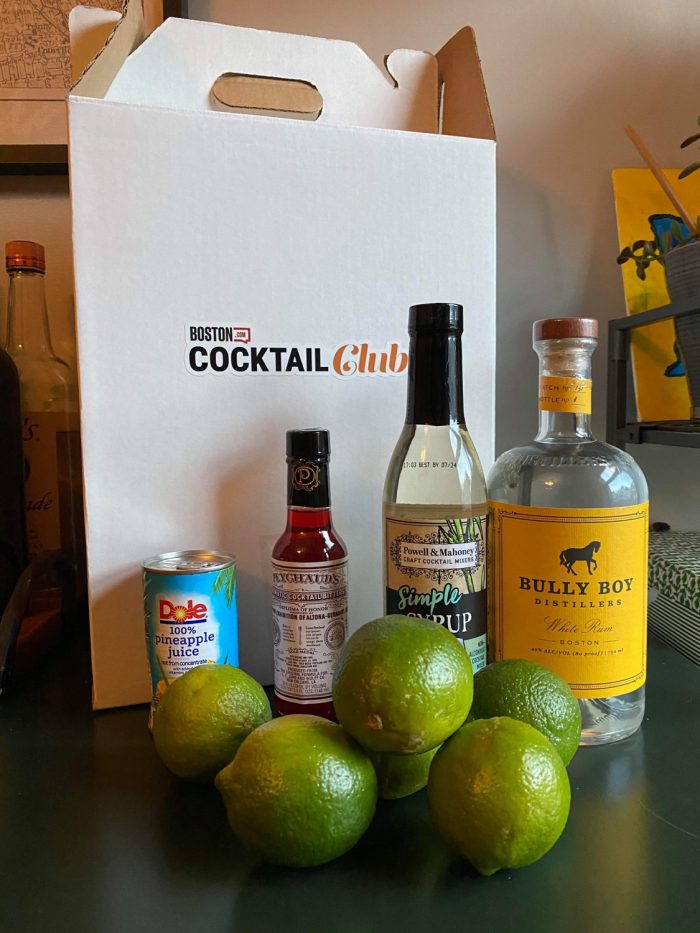
Over 110,000 restaurants in the United States have closed because of the coronavirus pandemic. In Massachusetts, where Nieman Lab is based, 49 percent of operators say it’s unlikely that their restaurant will still be in business six months from now if they don’t receive help from the federal government. Fifty-five percent are considering temporarily shutting down until the pandemic ends.
As coronavirus cases continue to rise in the state, a return to normalcy for bars, restaurants, and service workers is a long way away. That’s why at Boston.com, a news site owned by the Boston Globe, the staff wanted to figure out a way to help.
“We wanted to build a program aimed at bars and restaurants that are really struggling and help folks who are in Boston feel more connected to their community while still being socially distant and safe,” Matt Karolian, the general manager of Boston.com and a 2018 Nieman Fellow, said. “We thought, what if we bring bartenders into people’s homes to show them how to make this perfect cocktail that they’ve been missing, and support the bars and restaurants in the process?”
The Boston Cocktail Club launched on New Year’s Eve and had more than 500 signups for its first event. Participants got an email with a Zoom link for Thursday night at 7 p.m. There, they got to watch a new Boston bartender teach them how to make two cocktails. Karolian said Boston.com is working with Boston mixologist Jackson Cannon to identify bartenders and restaurants that represent Boston’s unique food and bar scene. Cannon reaches out to them, and once they agree, they begin to brainstorm what cocktails to showcase.
“We’re trying to pull from all different areas of the city and all different types of cuisines and bars to create like a really representative sample,” Karolian said. “There’s such a fun food scene in the city that we all just miss, and this is our ability to replicate that as much as possible until it’s safe to go back out again.”
After users register, they have the option of buying a $59 cocktail kit ahead of the week’s event. The box includes everything they’ll need to make the drinks being showcased. Boston.com works with Gordon’s Fine Wines and Liquors, a local distributor, to curate and make the boxes. The proceeds from kit sales are donated to Off Their Plate, a grassroots organization started in Boston that aims to feed frontline workers, including service workers, during the pandemic.

Boston.com then pays the bartenders the equivalent of a really good Friday or Saturday night’s shift pay for their time. During the event, viewers are also encouraged to Venmo tips to the bartenders and a graphic shows the bartenders’ usernames. “We say ‘hey, if you’re having a great time, and you’re enjoying the cocktail, please take care of them,'” Karolian said. “We’re trying of replicate as much experience as possible and make sure that folks who are important parts of our community can continue to be able to make a living.”
Karolian said the Cocktail Club is modeled after Boston.com‘s Book Club, which brings in local authors and booksellers to talk to members. News outlets like The New York Times, The Wall Street Journal, and NPR have all had their own wine clubs for years, but Boston.com’s Cocktail Club is distinctly focused on supporting local businesses.
“A cocktail club is just so much more fun than a wine club. Tasting wine is a bit of a passive activity, while making a cocktail is far more fun and interactive,” he said. “Each consecutive week we try to make you a little bit better at making drinks, a skill that will make you a very in-demand party guest once Covid ends.”
Behind the scenes, Karolian and others are putting together slides with the recipes on them and developing multi-camera setups with phones, iPads and laptops. This way, the bartender can log into the Zoom on all their devices and viewers can watch them assemble a drink from different angles.
During the livestream, bartenders chat with Cannon about their work and their own styles of making drinks. Any local bar has its own recipe for a cocktail and the bartenders get to talk about why they do what they do, while they do it.
“Takeout is great, and people should continue to order takeout because it’s really the only source of revenue a lot of these restaurants have right now. But you lose personal interaction,” Karolian said. “Having bartenders do these live events allows there to be a more personal, interactive nature.”
In April, Boston.com launched Boston Helps, a service to connect people who wanted to help others impacted by the pandemic. Through Boston Helps, people donated $200,000 to help pay for others’ groceries, toiletries, meal delivery, and ride-share services.
The demand and success of these programs not only highlights a need for them among Boston residents, but also the changing role of local news as a convener of community, Karolian said.
“If and when Boston.com can help our city, we should do it. When Bostonians were struggling in the beginning of the pandemic, we launched Boston Helps, and now that restaurants have their backs up against the wall, we are launching a program that helps them,” he said. “We’ve seen again and again that people want to help their neighbors and small businesses who are struggling. Local media is in a unique position to to bring everyone to the table because we have scale, expertise, and community.”